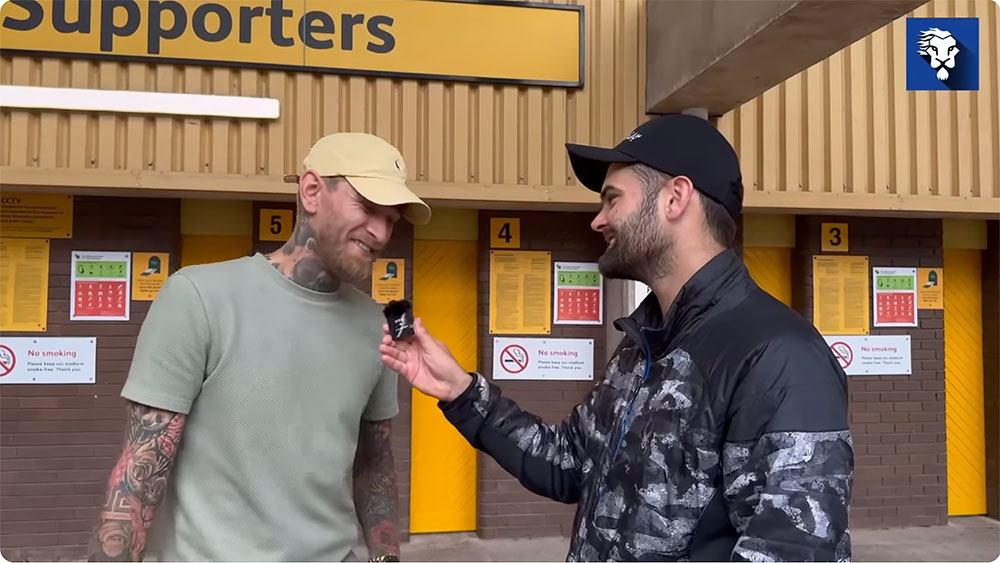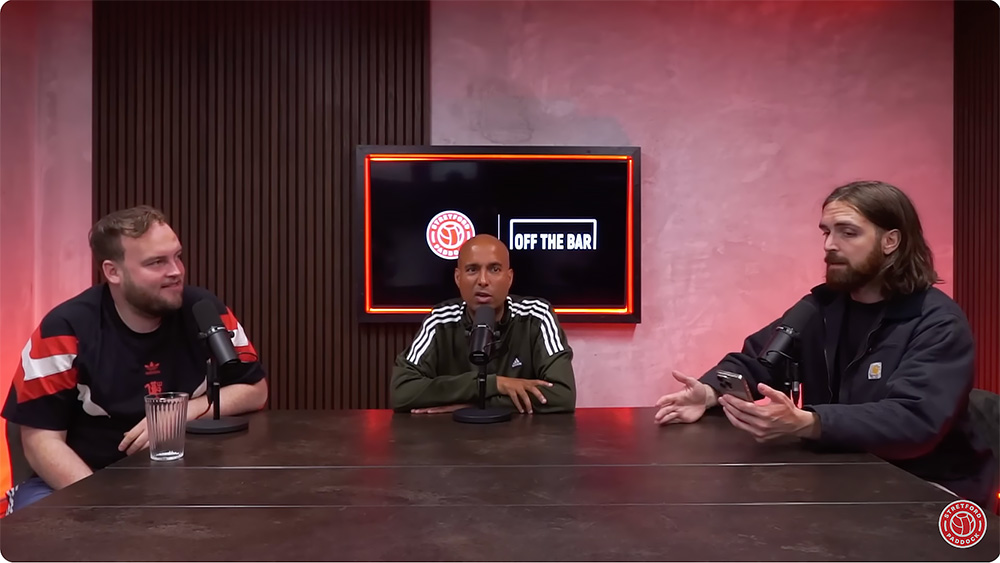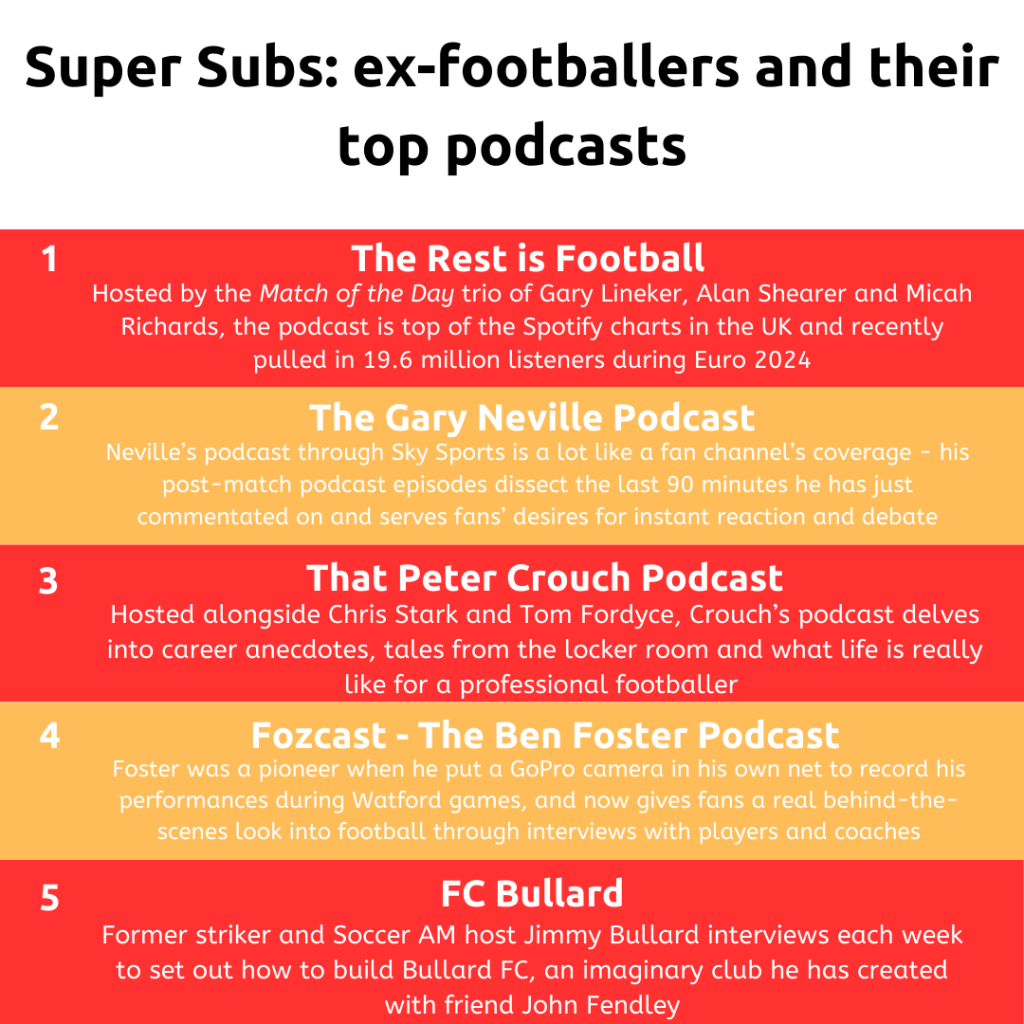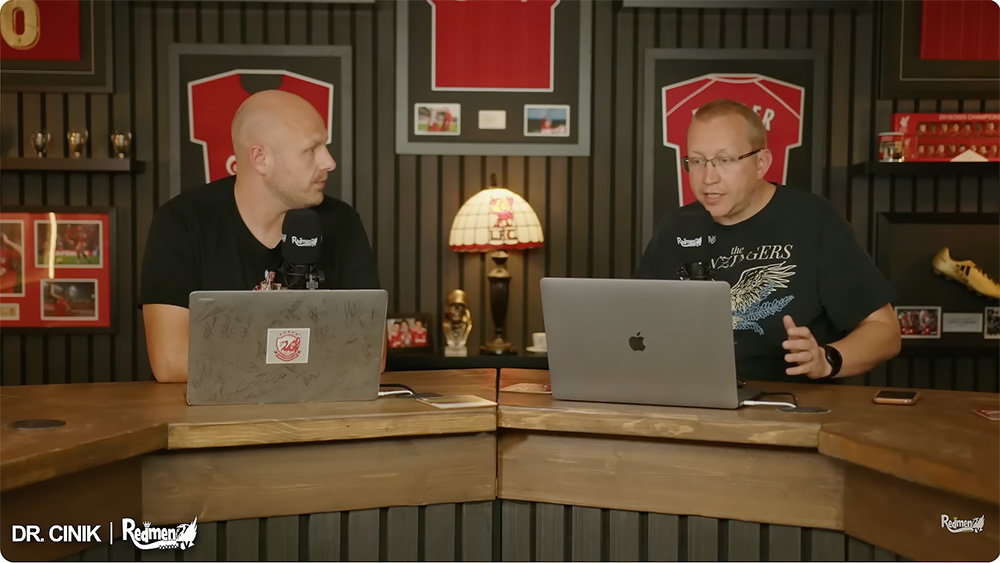With more fan channels broadcasting to finite football fans, how are channels innovating new content and what lies ahead for the industry’s future?
The growth of the fan channel industry has hugely subverted the way in which football fans follow their favourite club. Where traditional broadcasters such as the BBC and Sky Sports have long transmitted all knowledge on statistics, transfers and tactics, fans now have a wide range of sources to consult, not least like-minded, independent channels that are run by people you would expect to see on the terraces on a matchday.
Fan channels have seized upon a desire for passionate, authentic and immediate coverage of football that has massively expanded access to fans worldwide. That is even though not one of them can broadcast the match itself, unlike their mainstream rivals.
Many operate on YouTube and have developed a reliable rotation of programming – the popular ‘watchalong’ where presenters will commentate on a match in real time, ‘fan cams’ interviewing outside stadia, panel debates with professional journalists and ex-players and pre-and post-match coverage, to name a few.
But as channels grow, so too does their need to innovate to a larger audience. So how are fan channels creating new content and what will it mean for the future of the industry?
Alex Harris, Chelsea Fan TV
Chelsea Fan TV is one of the largest channels covering the London club, currently boasting over 200,000 YouTube subscribers, and has followed the trend of the industry showing exponential growth over the last few years – not bad for a channel that was founded in 2016.
For owner Alex Harris, who took over running the channel three years ago, one of the key areas he wants to incorporate into the creative process is consistency and not let the growth run wild.
“If you can find a show that does well, you do it once a week, you get seven shows. That’s my model and it’s worked very well. It’s good to have the reactionary stuff as well, but I think when you’re working with thumbnail designers, editors and presenters, it’s much easier to have a schedule and be able to plan ahead a little bit more,” said Alex.

Connecting with fans is also a key ambition for relatively young channels such as CFTV – Alex is all too aware of aspiring content creators looking to make money from a growing industry and warns success is not guaranteed.
“I know people who did YouTube for other fan channels. They did it for a couple of years not getting paid and they’re very successful at the moment in the industry, so that is what you have to do. If people are willing to invest, and it is years of investment, they can create a career,” said Alex.
Part of that planning also includes working out where there are gaps in current fan channel content, something that Alex realised with the ‘fan cam,’ a quick, easy to record piece which interviews fans either pre- or post-match at a stadium.

“Fan cams is something that not enough channels do, it’s the best way to grow your channel. If you get the right characters on, fan cams create a lot of opportunities for presenters who want to grow their brand.”
For Alex, fan cams are an effective way to appeal to audiences’ wishes for authentic, real-life fan experiences and for the channel’s aims to produce fun, sharp content without too much time spent in the editing room. Naturally, he admits they are slightly harder to do after a heavy defeat, something that Chelsea fans saw a fair bit of last season.
With so many fan channels operating out of YouTube, Alex believes it has an edge over Twitter and other text-based platforms because fans connect better with seeing like-minded people.
“I think it takes a lot more effort to do YouTube, but as you expand throughout different types of social media, it’s less representative of what fans actually think and more just to get a reaction. Long form YouTube content is arguably a better representation of fan media,” said Alex. “I can tell that they’re raving about a loss or they’re ecstatic after a win and feel that connection. That’s how you connect to people.”

CFTV is still a part-time venture, with Alex primarily working as a tennis coach, but he is encouraged by the way in which the channel is developing. While Alex is committed to growing the channel in a controlled way, the dream remains to provide full-time work for his 20 or so staff.
On a wider scale, Alex believes that the fan channel industry is providing an encouraging environment for football fans of all backgrounds to get involved.
“Fan media is becoming the new professional media. People don’t realise that if they got involved, even if they had a minute role, they add such great value to the channel. It’s something that if you’re able to get right, it’s an amazing thing and once one person does it in in this space, everybody soon realises that it’s possible.”
Jay Mottershead, Stretford Paddock
Alex is not the only one seeing fan media take on the old guard and the likes of the BBC and Sky. Jay Mottershead runs the Stretford Paddock, a leading Manchester United fan channel with over 750,000 subscribers, and believes that the industry is in the middle of an innovation explosion.
“There’s a lot of crossover between fan channel media and mainstream media. You’ll see formats, podcasts, ideas for shows being copied and I don’t see it slowing down. Gary Neville almost created his own fan channel with The Overlap, obviously in association with Sky, but they’ve taken a lot of what you would see on fan channels and done it with very high production values.”
While that may seem like a negative at first glance, Jay thinks it’s a sign that the fan channel industry has greatly increased its creative capability. Importing successful concepts has also provided fan channels with a greater level of exposure in mainstream journalism and, in the other direction, traditional broadcasters are accessing new audience demographics.

Jay has seen firsthand that interaction between fan channels and mainstream journalism has provided them with a real sense of credibility – he makes a particular point of saying a stigma of working with fan channels is disappearing and has encouraged ex-players and journalists to appear more regularly.
That doesn’t just increase the quality of their current content offerings, it raises the bar for newer fan channels looking to get started.
“New channels are coming in like this where they’re starting with a studio. They’re starting with a production team, a host of presenters. The bar has been raised to the point now where you don’t bat an eyelid if you’re watching a fan channel and it’s in a studio and it’s got a player on the panel,” said Jay.
For the Paddock, however, no matter how high the quality goes, what drives the way in which they create and innovate content is a strong application of their founding values, chiefly to reflect United’s diverse, global fanbase.
“We don’t just cater for English, middle-aged, Mancunian, bald fans. We cater for everyone whether you’re sat in Indonesia or in Salford, whether you’re a match-going fan who’s been to every game since 1987 or whether you’ve never set foot in Old Trafford. You should be able to be joined together as United fans,” said Jay.

Jay says there is never a question of targeting a specific demographic, both for content and those contributing to the channel, but representation is a frequent topic that guides the channel.
“I’ll be honest with you, we don’t have enough women on the channel. We do have women contributors and female presenters, it’s just I would like to see more. I do always have half a mind of that and think ‘Are we representative? Are we giving the voices we should be giving to people?’”
But as much as Jay is proud of building a community for the red half of Manchester and beyond, he is concerned that the industry is being drawn into a harmful cycle of channels chasing clicks with controversial content.
“Too many channels go down that route of trying to outdo each other in the outrage, the nonsense, the toxicity that can sometimes drive views. That can be a worry when you see new channels – some start and they think ‘OK, this is the way to go,’” said Jay.
Chris Pajak, RedMen TV
Audiences themselves are playing a key role in the further growth of the fan channel industry and even for the seasoned professionals, the scale of challenges ahead are growing.
Created in 2007, RedMen TV counts itself as one of the pioneers of the fan channel format and founder Chris Pajak has seen the industry grow and inch ever closer to its mainstream competitors.
“We count ourselves very lucky that were one of the forefathers of it. We managed to build up a head of steam before everybody else, whereas now, I think it would be much harder to start. I think over the last five years Sky and the big media companies are leaning our way,” said Chris.
Chris thinks mainstream broadcasters and professional pundits are increasingly adopting content from fan channels, seen in the growing popularity of filmed podcasts like Stick to Football and The Rest is Football. The professionals have the upper hand, but much of their work has its roots in fan media.

In the current market, experienced fan media figures like Chris argue the key is not challenging, but complementing – and it’s all to do with doughnuts.
“Think of what you do as a ring doughnut. You might not have the tasty filling, which is the football of a jam doughnut, but it’s still nice. You were adding something to the outside of it – that’s what fan media is. We’re enriching, hopefully for the right reasons, people’s enjoyment of the sport,” said Chris.
But while there are different ways to go about it, media outlets on both sides are competing for the same thing – audience attention.
“I’m competing with Netflix, Prime Video, Disney Plus, Paramount Plus, Sky, BBC, ITV. RedMen is competing with all of them for people’s time and that in and of itself is incredibly difficult. That’s where I think it’s going to become more and more difficult over the years,” said Chris.

RedMen is looking to make some bold leaps with growing the brand, however, and it could shine a light on the direction in which innovation is heading. The channel has branched out into live shows across the UK, with more dates scheduled this year, but Chris thinks there is an even bigger opportunity for the industry to grow – IPTV.
“It’s just like watching a channel on the television – like the iPlayer. I think a lot of fans will move into that space and maybe become more popular from that. So you’ll have mobile phones, tablets, laptops, smart TV’s. There are other mediums as well, like Twitch. As these platforms develop, you’ll see more fan channels in more different places,” said Chris.
That also means seeing fans in more places as well. Chris is keenly aware of how RedMen’s audience is changing and reckons the greatest share of the audience is between 35-44. It’s meant they can have one eye on their current fanbase and even start conversations about the future faces of the channel.
“I don’t know how many young people are going to want to listen to a 50 year old Paul and Chris talking about football, but that’s why, hopefully, in the long term we’ll have presenters you come in and take our places,” said Chris.
